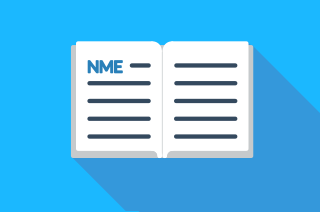First of all I’d like to thank the organisers for setting up this panel and for making me part of this discussion.
Today I will use the time I have on this panel to talk a bit about neighbouring rights, investments in the news media industry and enforcement.
First, for those who not familiar with News Media Europe, I’d like to give you the following introduction:
My members, staff and I represent the progressive news media industry in Europe – over 2200 titles of newspapers, radio, tv and internet. We represent the interests of these media in European policy discussions on AVMSD, VAT on digital content, rules on advertising and so forth. In doing so, protecting media freedom and promoting media pluralism underpins everything we do and stand for.
In that light, we have taken note of the abrupt shut-down of newspaper Népszabadság and we are deeply concerned about the lack of media pluralism in Hungary.
As I stressed in previous discussions, freedom of the press is more than simply a policy priority. It is the foundation on which European democracy, and European civilization, is built. It is the guardian of every other individual liberty we as European citizens take for granted – of thought, conscience and prayer, of the judiciary and the right to a fair trial, of free assembly. Where the press falters, either because of a direct attack on free speech or more likely in this competitive environment because of commercial failure, then the quality of our democracy suffers. That is why News Media Europe is so passionate about this, and why it is our central mission to safeguarding it.
News Media Europe is committed to maintaining and promoting the freedom of the press, to upholding and enhancing the freedom to publish, and to championing the newsbrands which are one of the most vital parts of Europe’s creative industries.
Introduction of neighbouring rights
With the introduction of neighbouring rights, publishers are recognised as rightsholders. Recognising publishers as rightholders under EU-copyright law would give publishers the legal right to decide on how and where their content is made available. Every publisher would have the right to waive this right, or to manage it exclusively or collectively – but, importantly, it would be their choice.
I don’t need to explain to anyone here that the patterns of news media consumption are shifting. The rise of new technologies, new platforms and media sources have all contributed to this. News publishers are very much aware that this requires adaptation and that there’s a need to innovate in terms of news products as well as in ways to monetise on these products. Because, and this is important, content may be free to access, it is not free to create.
The introduction of neighbouring rights for press publishers is precisely about this – adapting. Adapting to new realities, future-proofing income models for an industry that didn’t have this right before.
But most of all, it is about preserving quality journalism, content that is subject to editorial oversight, written by journalists that are granted the freedom to produce quality content.
Investments into a sustainable news media industry
Our industry is often seen as an old-fashioned, analogue industry. Reality is quite different – while the industry is very competitive, with many different titles on different platforms published in different geographies and targeting different audiences, both offline and online, publishers need to continuously innovate and cater for the news consumption preferences of their reader-base.
In a digital world, the value chain can be very long and complex. Looking at some of the well known examples from other creative industries, like Spotify and Netflix, we see that some players in that value chain are dedicated to production, some are dedicated to making the content available and some are even finding better and smarter ways to provide content to the consumer. This ecosystem finally creates value for every single user and the content becomes available at reasonable prices.
However, the sustainability of these environments shouldn’t be taken for granted. Their success depends on a common recognition of their role in the system but also the recognition of the value of every single player in the field.
It is therefore that I say that the introduction of neighbouring rights is not about punishing the platforms. It is about cooperation, and acknowledging the role of the publishers in this value-chain.
In order to make investments, attract resources to do so, etc, one needs a stable and predictable environment – this doesn’t only go for the publishing sector, but for virtually all sectors. The introduction of neighbouring rights, and thereby the recognition of publishers as rightsholders, provides legal certainty against which the sector can invest in, and build on a sustainable future.
And by the way, this legal certainty doesn’t only help the news media industry, it also helps internet platforms, startups and anyone else who wants to build a business based on news media content in understanding where they stand. This is important if we want to build a bigger, better and more sustainable European news media ecosystem. A bigger pie altogether, not just a bigger piece for some.
In the pre-internet world, we have never had the need to have this discussion – things were pretty clear the way they were. Currently, in a society that relies heavily on digital, including for the consumption of news, this framework has gotten more opaque. This is what this discussion is trying to address – enabling a workable and sustainable way to enforce copyright by rightsholders who are continuously investing in high-quality journalism, while currently others free-ride on this content. And the sad fact is that most of the income generated this way is shipped off to Silicon Valley.
Enforcement
So, the legislative proposal merely acknowledges press publishers as rightsholders, allowing our industry a say on the use of our content. This is a future-proof right, which – in its enforcement – is likely to lead to the conclusion of specific licensing agreements with those who currently discriminately exploit our content at a grand scale. These agreements are common practice in other creative sectors.
Fair and sustainable agreements for the massive commercial use of our content, will ensure that we keep having the resources we need to grant journalists the economic and legal certainty they need to keep producing independent and high quality journalism.
These agreements will be about restoring fairness and sustainability not only towards our industry but also towards consumers: with the fair remuneration of our industry in the digital age, Europeans will continue to be able to access quality press content allowing an informed democratic debate.
In closing, I would just like to ask your attention for an initiative we launched in cooperation with our colleagues from EMMA, ENPA and EPC in support of the publishers’ right: http://www.publishersright.eu/ It also features a myth-buster, which addresses a number of questions surrounding the debate.
Thank you and I look forward to the discussion.










